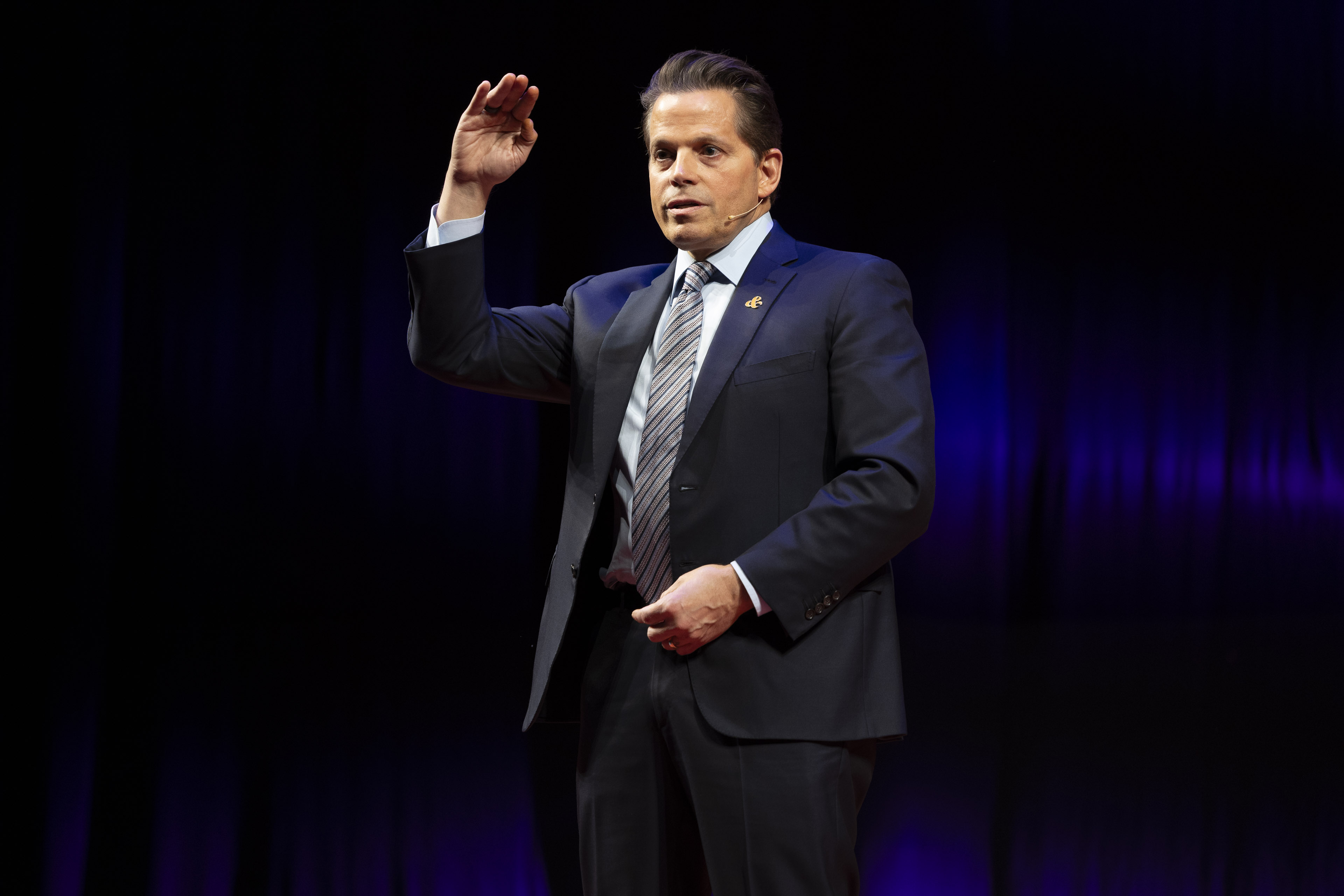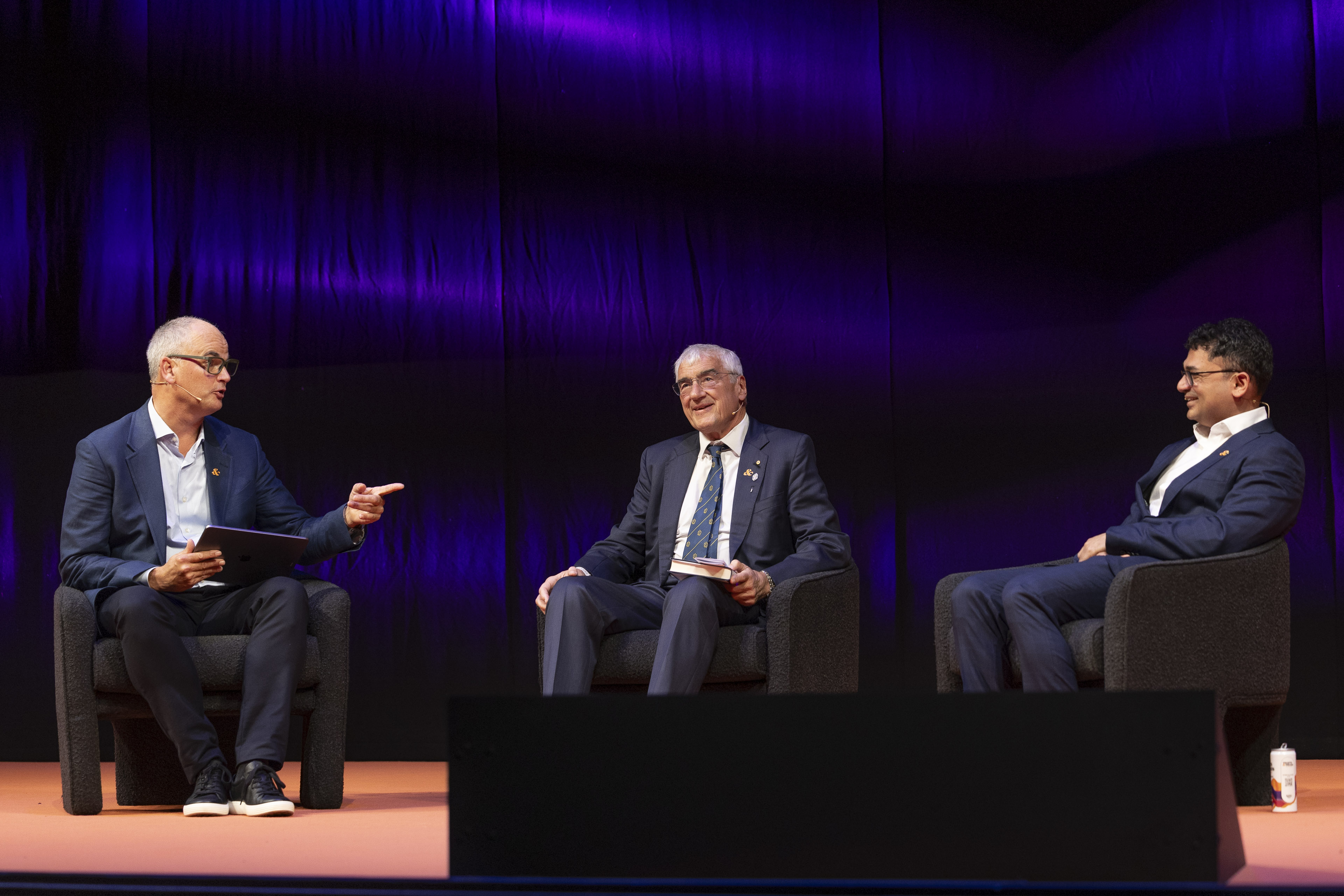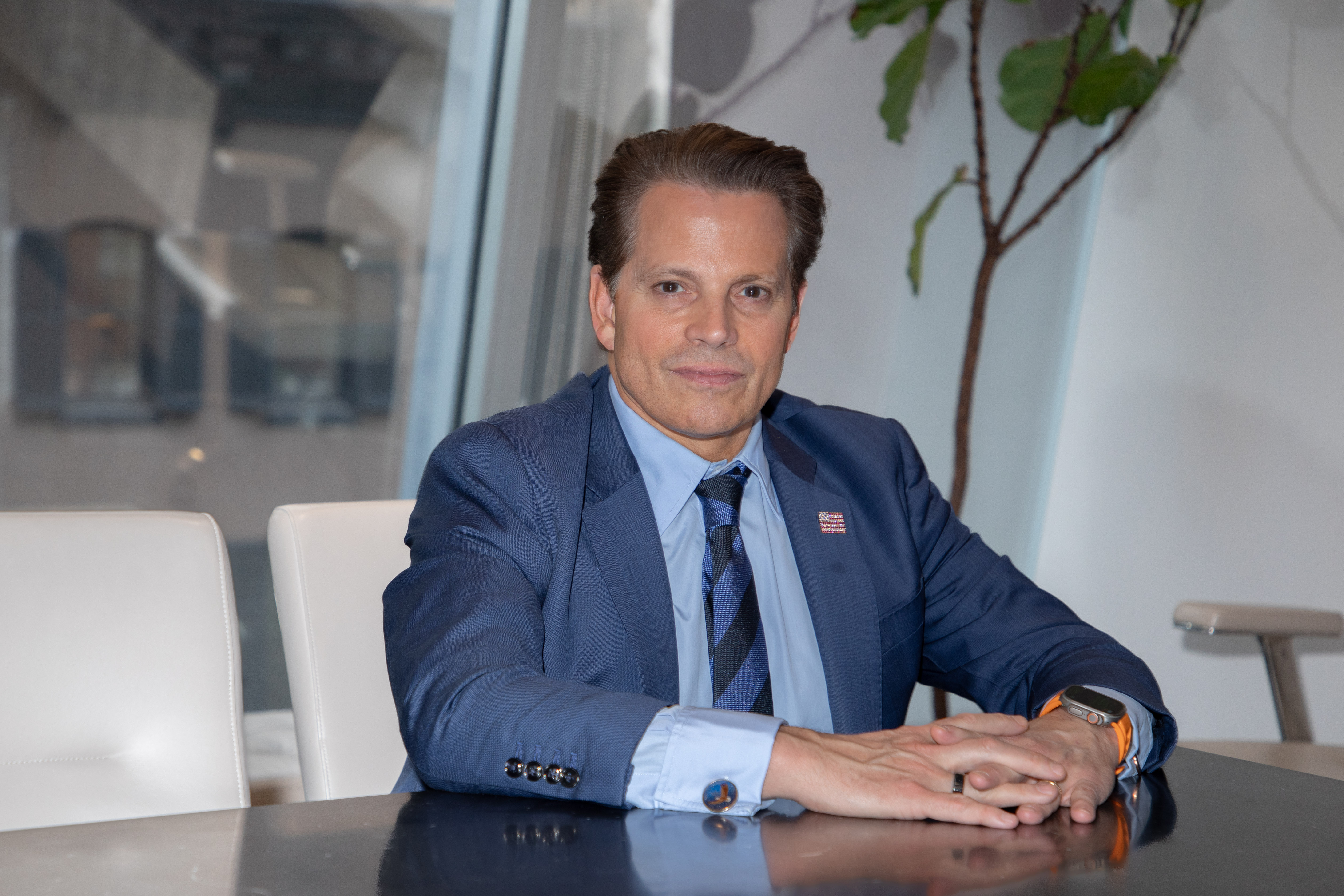
Renowned activist investor Dan Loeb is older, wiser and changed when it comes to the types of companies he targets and how he goes about it.
He’s friendlier, more constructive and much less public in his campaigns, he says. He’s chasing bigger targets – a necessity when you’re running much more money – is more focused on capital allocation and reckons he’s even welcomed by CEOs who may need an outsider to nudge a reluctant board.
Dan Loeb’s letters are the stuff of investing legend. David Rowe
“They actually encourage us to write the letter,” he says.
Loeb says he has discovered that this activism – a less public version – can be very influential. He says he’s getting traction by going after companies’ margins, expenditure and strategies, making the scathing letters and public campaigns much less common.
“What we do is mostly behind the scenes,” the headline act at this year’s Sohn Hearts & Minds conference said on Friday.
It struck us as a maturing of a Wall Street spear thrower.
But there’s one part of the activist toolkit he says he will never put away: the proxy fight.
“Corporations without bankruptcy [are] like Catholicism without hell,” he said. “I’d say the same thing about activism.
“Activism without the potential of a proxy contest doesn’t work, so we keep that in our back pocket, our little trade secret.”
So, Loeb says he’s firing in these proxy requests, but now often quietly. He cites new Domain-owner CoStar as an example – no one knew there was an activism campaign under way until the company announced a standstill between Third Point and DE Shaw and two new directors for its board.
Loeb’s letters are the stuff of investing legend; they were often personal, aimed at specific directors or executives, and used colourful language including “CVD” or chief value destroyer and “LSC” or “lucky sperm club”.
It’s interesting because what happens on Wall Street eventually makes its way into Australian capital markets.
Anthony Scaramucci (left) and Dan Loeb at the Sohn Hearts & Minds conference in Sydney on Friday. Renee Nowytarger
Bankers for years have told us to expect large-scale activism and although it didn’t really come – except Grok’s run against AGL Energy’s demerger and board, which was unlike anything seen in this market since – there’s plenty of behind-closed-doors activism bubbling away.
Look at James Hardie Industries and its protest votes.
Look at Ramsay Health Care and Aurizon Holdings’ potential asset sales.
Look at Orora backing a change to its constitution to prevent a large scrip M&A deal.
Look at Macquarie Group’s first strike, CSL’s second strike and all the other mini proxy battles that are a feature of this AGM season.
What we haven’t seen – and why we’d argue Australian directors don’t realise how good they’ve got it – is a proper proxy fight complete with boardroom change.
The closest we have is James Hardie, where a stunning three directors, including the chair, were not re-elected at last month’s annual general meeting. Investors are suggesting replacements, though it remains to be seen whether they get their way, too.
Loeb’s address was the highlight of a full day of stock pitches and thematic panels at Sohn. The organisers kept Loeb until after lunch, and he didn’t disappoint.
He gave a pretty upbeat view of the US economy and even the AI sector, saying there was a bubble but at the neocloud/provider level (he called out CoreWeave, for example) rather than the Microsoft/Amazon/Nvidia end of town.
He seemed less fiery than his address at the same conference two years ago, perhaps showing how his activism approach has changed.
He spoke about company and management culture (he likes CEOs “willing to roll up their sleeves” and is worried by any chief executive who has their own elevator) and taking his business back into credit, where it all began.
The lesson, though, was his point about activism. Just because the nasty letters and public campaigns have vanished from the headlines, don’t think battles are not brewing below the surface.
This article was originally posted by The Australian Financial Review here.
Licensed by Copyright Agency. You must not copy this work without permission.


“The Mooch”, as he’s affectionately known, is a man in high demand. He’s flown into Sydney to headline the Sohn Hearts & Minds conference at the Opera House, an investment community jamboree that raises money for charity. He landed in London the night before, and will leave Sydney the next day for the brutal 24-hour return to New York.


Australian investors should be more worried about China than sweating on Federal Reserve independence and other market obsessions to do with Donald Trump, says billionaire conservative Baron Michael Hintze.


Beyond Wall Street, The Mooch is better known for his cutting takes on US politics in the popular podcast The Rest is Politics: US, which he hosts with BBC’s long-term North American correspondent Katty Kay.